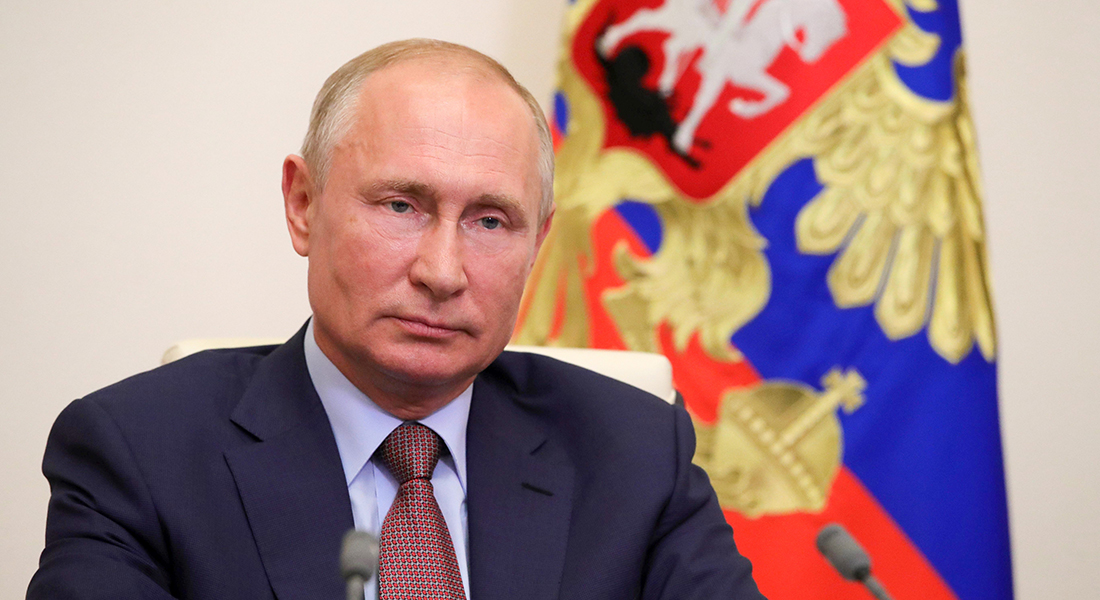The war is the logical consequence of Putin's ideological struggle with the West
If you have followed what Vladimir Putin has said and written about the West and Russia the past few years, the invasion of Ukraine should not come as a surprise. What is surprising is how poorly it seems to have been prepared.

In July 2021, Vladimir Putin wrote an article about the special cultural ties that exist between Russia and Ukraine, and he argued that the two nations, historically, are one and the same country. And not only that: Ukraine had been at the mercy of Western powers for years.
"When I read this article, I was sure that it would end in an invasion. It was a de facto declaration of war,” explains Associate Professor Mikhail Suslov from the Department of Cross-Cultural and Regional Studies, where he conducts research on Russian politics with a special focus on ideologies, utopias and geopolitics.
"In Putin's view, the West has tried to impose its values and culture on other countries and regions for many years, and this is unacceptable to him. He wants to ensure that Russia can establish its own world order in its own region without Western interference. With the use of force, if necessary – and nuclear threats, if that is what it takes,” Suslov elaborates.
And, according to Mikhail Suslov, Ukraine represents a logical development in Putin's ideological struggle: he attacked Georgia in 2008, annexed the Crimea in 2014, and now he has invaded Ukraine.
Poor planning
In other words, Putin's decision to invade Ukraine is not a surprise. However, what has surprised Mikhail Suslov is how poorly prepared the invasion seems to be.
"We know that Russia has had spies all over Ukraine, and that they have been very close to both the military and political leadership in the country. So Putin has had access to good intelligence. That makes it all the more surprising that the Russians have made so many mistakes, and that the invasion has been so incompetently carried out until now, says Mikhail Suslov and continues:
"This has made some people think that Putin lives in a bubble and no longer has any grip on reality. It's difficult to say whether there is any truth in that, but what we do know is that he has surrounded himself with very few people over the past two years because of the pandemic.”
But in the West, we know very little about how the Russian regime makes its decisions. Paradoxically, we know much more about the decision-making processes during the Soviet era:
"We know, for example, exactly who decided that the Soviet Union should invade Afghanistan in 1979, and we know who in the Communist Party opposed it. On the other hand, we know nothing about the decision-making processes in Putin's government. And we need to be aware that Putin has an interest in being perceived as a crazy and secluded dictator who would do crazy things like using nuclear weapons.”
Putin sit securely in the saddle - so far
With the unexpected resistance from the Ukrainian army and the harsh Western sanctions, many commentators hope that Putin will be squeezed out by an increasingly dissatisfied population and frustrated oligarchs. But Mikhail Suslov believes that it will take some time.
"What you need to understand is that this Russian regime has been created with a single purpose: to support Putin and his ideological struggle. And even though the middle class and the oligarchs are now beginning to fear that their privileges and money will disappear, it will take a long time to do something serious about the regime. However, it is clear that if Russia loses the war in Ukraine, it will be a serious blow to him. That is why I think he will do everything he can to avoid that," says Mikhail Suslov and concludes.
"When the war in Ukraine is over, Putin will try to further consolidate his power in the region, and Moldova and the Baltic states will be the obvious targets. This does not mean that there will be more military confrontation, but there is no doubt in my mind that he is going to put pressure on other countries and continue to threaten NATO with nuclear weapons if they intervene.”
Contact
Associate Professor Mikhail Suslov
Department of Cross-Cultural and Regional Studies
University of Copenhagen
Phone: +46 - 728487258
Email: mikhail.suslov@hum.ku.dk
Press officer Carsten Munk Hansen
Faculty of Humanities
Phone: + 45 28 75 80 23
Email: carstenhansen@hum.ku.dk
